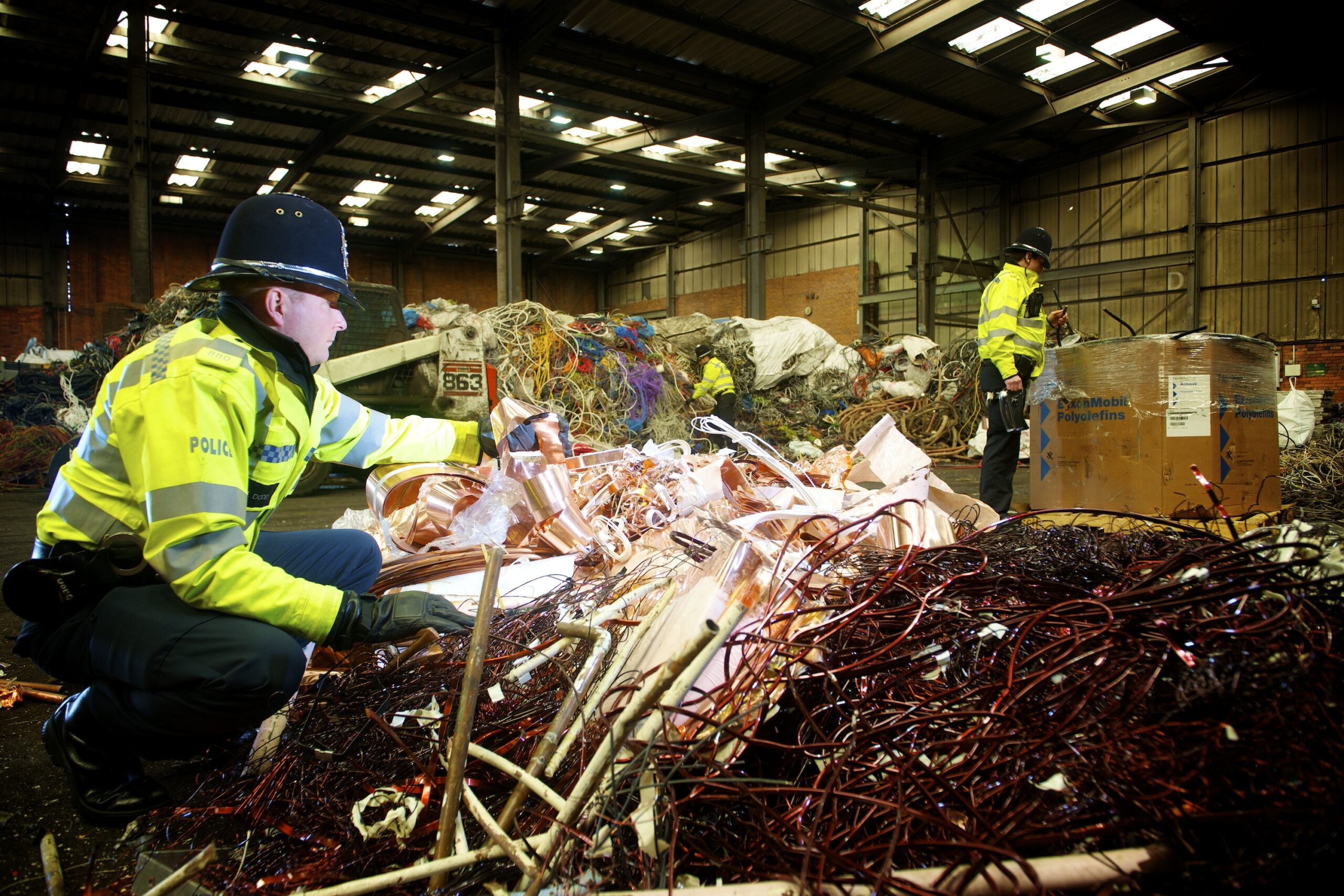Is metal theft still an issue? Legislation passed in 2013 does seems to have gone some way towards reducing the number of incidents in the UK. But concerns are being expressed that levels are about to start rising again - something that will add to the security challenges businesses and institutions are already facing.
Metal theft has been a problem for decades and in an effort to address it the Scrap Metals Dealers Act was passed in 2013. Metal has no inherent value to a thief – it needs to be sold. So the act aimed to clamp down on unscrupulous dealers who didn’t ask too many questions and effectively provided a market for stolen metal. It required all scrap dealers and motor salvage operators in England and Wales to apply for a licence from their local authority and keep records about who they were buying from. It also gave councils the power to assess an applicant’s suitability including checking for criminal convictions.
When the Office for National Statistics (ONS) figures showed 38% fewer metal theft offences for the year ending March 2016 compared to the previous year, the Home Office attributed that improvement to the legislation. But there’s disagreement about whether that’s really the case. Many other stakeholders – including the
British Metals Recycling Association - believe other reasons explain the figures. They point out that the volume of metal theft incidents is usually closely related to fluctuations in its price. Prices have been at an all-time low but they’re starting to rise again. As a result there are concerns that metal theft incidents are about to increase significantly.
Should that concern businesses?
Yes, it should. Metal theft is often associated with being a problem for churches and historical buildings and it’s certainly true that they suffer badly. But they aren’t the only target. Commercial and domestic buildings can all be targeted as can building sites and residential streets. Thieves steal a whole range of items: beer kegs, iron gates, boilers and air conditioning units, manhole covers, lead from roofs, motor signs, cabling. Metal theft can potentially damage a building’s infrastructure, resulting in increased safety risks to building users and the general public.
With the risk of metal theft looking likely to increase it makes sense to factor this into your wider considerations about keeping your property and possessions safe. So what can you do to stop your property being targeted by metal thieves?
Install detection systems
Installing a
CCTV camera system, along with signs highlighting their presence, can help deter thieves as well as increase the chances of catching them.
Alarm systems can be used to protect particularly vulnerable areas like lead roofs or ornate gates. Detection systems can be set up to sound an audible alarm, contact a
monitoring station and/or alert you via your phone so you can have your property monitored in real time.
Reduce access to metal where possible
Keep all metal, scrap or otherwise, in secure containers or buildings if you can. Remove or lock away anything that could help thieves climb up to access metal and think about whether installing secured fencing could help discourage not only metal theft but criminal activity in general.
Mark metals
While it depends on the nature of the metal product, there are usually ways to mark it and from a criminal’s perspective that reduces its value considerably. Using smartwater, chemical marking, physically stamping it: there are several things you can do to make your metal a far less attractive target for thieves.
Reduce the number of places to hide
Thieves are less likely to target premises if they think there’s a substantial risk of being seen. Consider installing security lighting and further improving visibility of your property and any particularly vulnerable areas by cutting back overgrown vegetation.
If you’d like some more advice about ways to keep your property safe, including installation of CCTV camera systems or intruder alarms,
please do get in touch with us. 